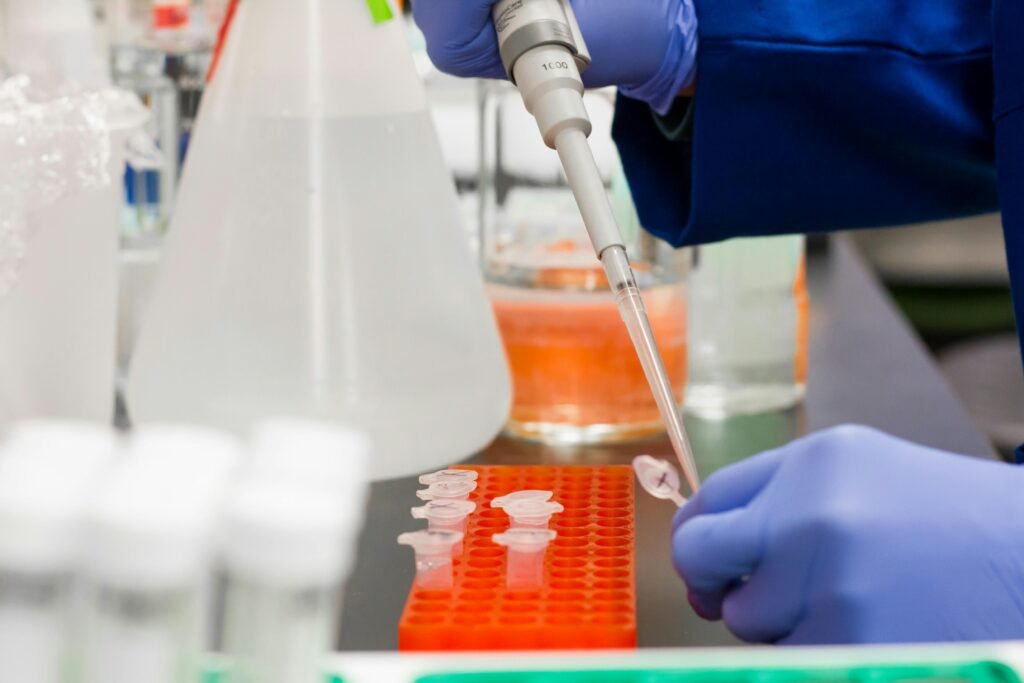The Rise of Genetic Engineering in Warfare

China’s controversial genetic engineering experiment, which aims to create a genetically enhanced super soldier, has sparked a global debate about the future of warfare. The experiment is centered on modifying the human genome to enhance physical and cognitive abilities, which could lead to soldiers with superior strength, endurance, and intelligence. The potential benefits for military performance are undeniable, but the risks and ethical concerns are substantial.
While the concept of enhancing human capabilities through genetic modification is not new, China’s ambitious efforts mark a significant step toward the integration of genetic engineering in military applications. The promise of superhuman soldiers capable of enduring extreme conditions and performing tasks with enhanced efficiency could revolutionize the battlefield. However, many question whether the world is ready for such radical advancements in human augmentation.
The Science Behind Genetic Modifications for Military Use
Genetic modification technologies, such as CRISPR, have made it possible to edit genes with unprecedented precision. In the context of military use, these technologies are being explored to enhance soldiers’ physical and cognitive abilities. Researchers are investigating how genetic modifications could improve traits like strength, reaction time, and even resilience to fatigue and stress.
While genetic modifications could provide significant advantages in combat situations, they also raise concerns about unintended consequences. Altering the human genome in such a way could have lasting effects, not just on the individuals involved, but on future generations. The technology is still in its early stages, and the long-term effects of genetic enhancements remain largely unknown.
Ethical Concerns About Human Genetic Enhancements
The idea of creating genetically modified super soldiers raises numerous ethical concerns. Critics argue that manipulating the human genome to create soldiers with enhanced abilities crosses a moral line. The ethics of genetic engineering in humans are already a topic of intense debate, but when applied to military purposes, the stakes are much higher.
One major concern is the potential for creating a new class of individuals with enhanced abilities, leading to a divide between genetically modified soldiers and regular humans. This could exacerbate social inequalities and potentially create a new type of genetic discrimination. Furthermore, the use of genetically modified soldiers in warfare could blur the lines between human rights and military necessity.
The Potential for a New Arms Race
China’s genetic super soldier experiment could set off a new arms race in genetic engineering, as other countries might feel compelled to follow suit to maintain their military edge. If genetic enhancements become widely accepted in military contexts, it could lead to a global competition to create the most advanced genetically modified soldiers.
This new form of warfare could lead to the development of genetically enhanced units within military forces around the world, fundamentally altering the nature of combat. As nations compete to develop and deploy genetically modified soldiers, the global balance of power could shift dramatically, potentially increasing tensions between rival countries and triggering a new kind of arms race.
The Impact on International Law and Human Rights
The creation of genetically modified super soldiers raises important questions about international law and human rights. Current international law, including the Geneva Conventions, is largely focused on protecting individuals in conflict zones, but it does not account for genetically altered soldiers.
If genetically modified soldiers were deployed in conflict, it could challenge existing human rights frameworks. Issues like consent, the right to bodily autonomy, and the treatment of soldiers could become increasingly complex. As countries explore the use of genetic enhancements in military applications, there will be a pressing need for new legal and ethical guidelines to govern these developments.
The Potential for Genetic Modifications to Reduce Casualties

One of the main arguments in favor of genetic modification for military use is the potential to reduce casualties on both sides of a conflict. Soldiers with enhanced physical and mental abilities could theoretically endure harsher conditions and recover more quickly from injuries, potentially saving lives. By making soldiers more resilient to physical and emotional stress, the technology could increase the overall efficiency of military operations.
The ability to reduce battlefield casualties would be especially beneficial in long-lasting conflicts, where soldiers are often exposed to extreme conditions and risks. The hope is that genetic enhancements could provide soldiers with the ability to withstand the physical and psychological toll of war, ultimately leading to fewer fatalities and long-term disabilities.
Genetic Enhancement’s Impact on Soldier Loyalty and Morale
The genetic modification of soldiers could also have a profound impact on their loyalty and morale. Some researchers argue that genetically modified soldiers could be designed to be more obedient or resilient to fear, making them more efficient and effective on the battlefield. However, this raises concerns about the dehumanization of soldiers and whether these enhancements could compromise their autonomy.
If soldiers are genetically altered to become more obedient or fearless, their sense of personal agency could be compromised, leading to ethical concerns. While such modifications might improve military performance, they could also erode the moral and psychological components of soldiering, which are central to the human experience in warfare.
The Long-Term Consequences of Genetic Modification on Human Evolution
As genetic modifications become more common, there is a growing concern about the long-term consequences of tampering with the human genome. While genetic enhancements could improve physical and cognitive abilities in the short term, the long-term effects on human evolution remain largely unknown.
Changes to the human genome could have cascading effects on future generations. If genetic modifications are passed down, they could alter the genetic makeup of the human race, leading to unintended evolutionary changes. The broader impact of these modifications on humanity’s future could result in profound shifts in human society, identity, and even our relationship with technology.
The Possibility of Genetic Engineering for Non-Military Purposes
While the focus of genetic engineering in military contexts is clear, the technology could have broader applications in non-military sectors. Some believe that genetic modifications could be used to enhance human capabilities for scientific, economic, and social purposes. For example, genetically modified humans could be developed to perform specific tasks in challenging environments, such as space exploration or deep-sea research.
The potential for genetic enhancement extends beyond the battlefield. As research progresses, it’s likely that governments and corporations will begin to explore how genetic engineering can be used to improve human performance in a variety of industries. However, such applications also raise concerns about access, fairness, and unintended consequences.
The Risk of Creating Unintended Genetic Consequences
Despite the potential benefits, the risk of unintended consequences remains one of the most significant concerns surrounding genetic modifications for military use. As with any new technology, there is the possibility that genetic engineering could lead to unforeseen complications. Genetic changes that initially appear beneficial could have negative side effects that only become apparent over time.
One concern is the potential for genetic modifications to cause new health issues, such as susceptibility to diseases or complications from altered immune systems. These risks could be exacerbated in military settings, where soldiers are often exposed to harsh environments and biological threats. The possibility of unintended consequences in genetically modified soldiers raises important questions about the responsibility of those implementing such technology.
The Global Arms Race in Genetic Engineering

As China moves forward with its genetic super soldier experiments, it is likely that other countries will follow suit. A global arms race could emerge, with nations competing to create genetically modified soldiers who are stronger, faster, and more capable than ever before. This race to enhance human soldiers could lead to a new form of warfare, where the focus shifts from conventional weapons to biological enhancements.
This competitive drive could have destabilizing effects on international relations. As countries rush to develop their own genetically enhanced soldiers, tensions may rise, leading to new forms of conflict. Furthermore, the technology could fall into the wrong hands, making it a potential threat not only to national security but also to global peace.
Ethical Considerations in the Genetic Modification of Soldiers
The ethical dilemmas surrounding the genetic modification of soldiers are numerous and complex. Some argue that enhancing soldiers to be more resilient and efficient is morally justifiable, as it could help save lives and improve national defense. Others, however, contend that tampering with the human genome raises fundamental questions about the nature of humanity and the moral implications of creating superhuman soldiers.
The debate centers around the value of human life and whether it is ethical to alter the genetic makeup of individuals for military purposes. Critics argue that such modifications could lead to a dehumanizing system where soldiers are treated as tools rather than individuals. This raises concerns about consent, autonomy, and the potential for exploitation in military contexts.
The Future of Warfare in a Genetically Enhanced World
The rise of genetically enhanced soldiers could change the nature of warfare forever. In a world where soldiers are capable of extraordinary physical and mental feats, traditional notions of war and conflict may need to be redefined. Warfare could evolve into a battle of biotechnologies, where genetic enhancements, artificial intelligence, and robotics are combined to create the ultimate fighting force.
As genetic engineering becomes a reality in military settings, the future of warfare will likely be shaped by advances in bioengineering and technology. The role of human soldiers may become increasingly blurred as they are augmented with genetic modifications, raising profound questions about the nature of war, violence, and human identity.
